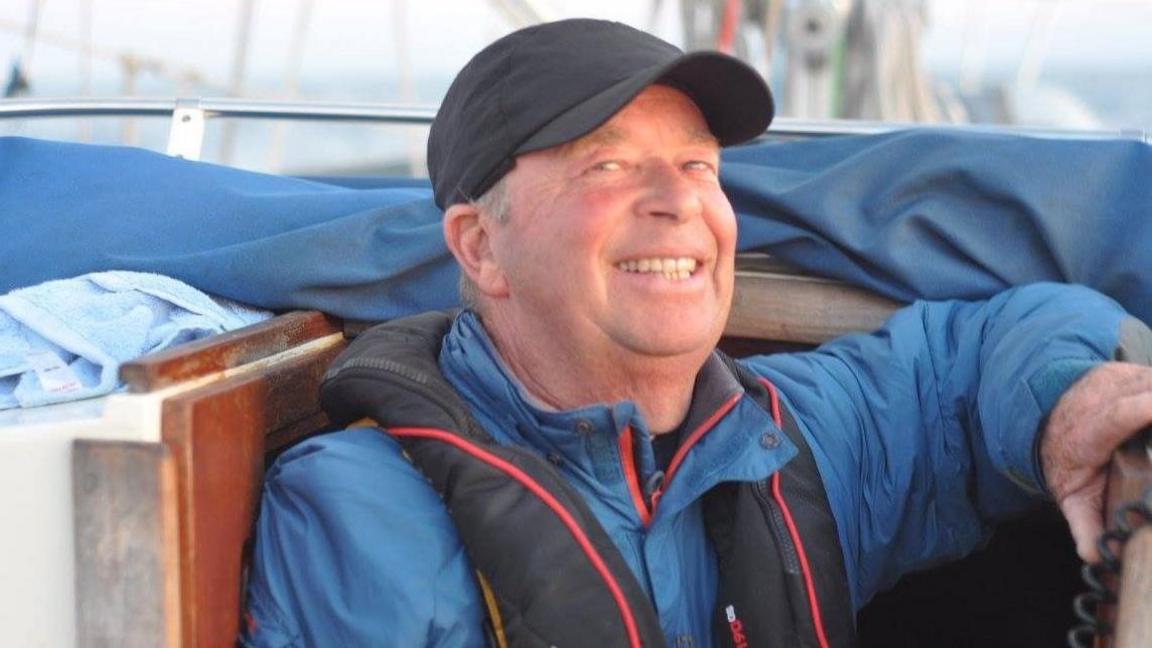Calls to help boy with rare genetic blood disorder
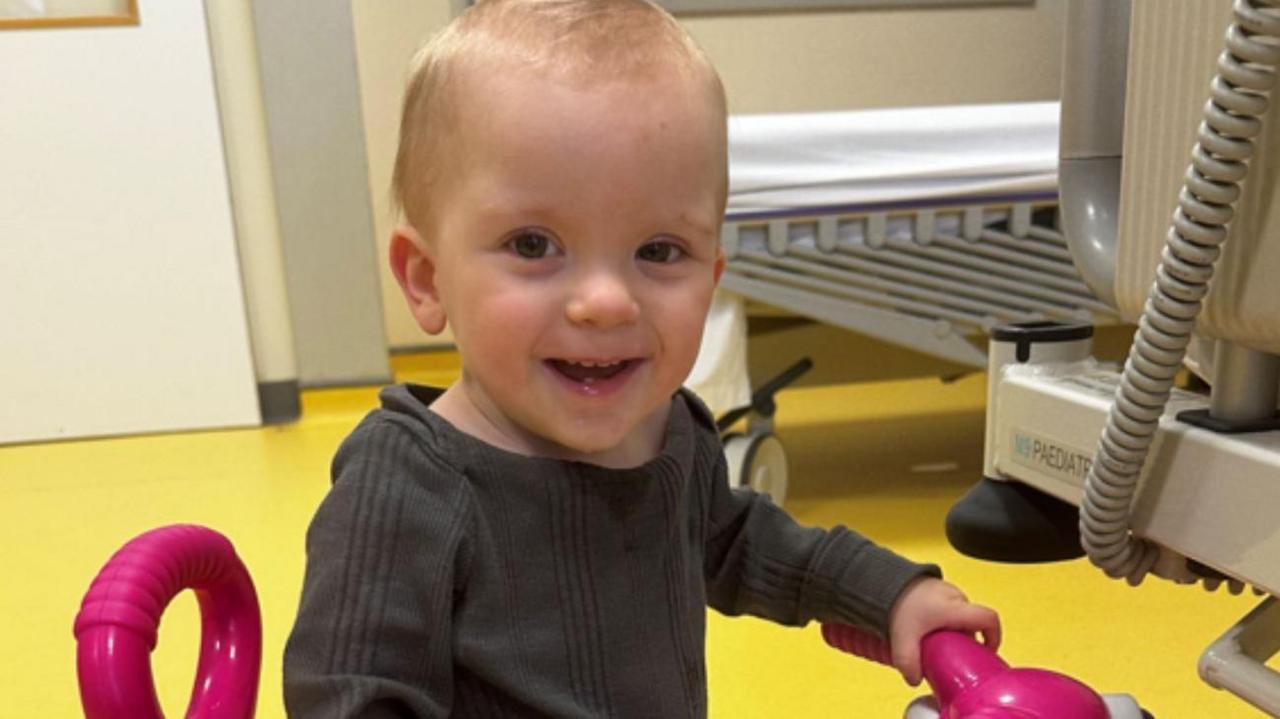
Woody has a rare, inherited condition which affects his red blood cells
- Published
The mother of a toddler with a rare blood condition is urging others in similar positions to get a "ground-breaking" blood matching test so patients can have safer long-term care.
Woody, aged 22 months, was diagnosed with Congenital Dyserythropoietic Anaemia (CDA) Type 1, which affects about one to five out of every million babies, according to rare disease resource Orphanet.
The condition means the DNA in Woody's red blood cells is disordered and he needs blood transfusions every four weeks to stay alive.
Woody's mother, Polly, 35, who lives in Robertsbridge, said it was "really frightening" when he was born as he was "poorly, pale and needed ventilation breaths".
"The first few days were very critical for Woody," she said.
"He was extremely unwell and nobody knew the cause for his haemolytic anaemia."
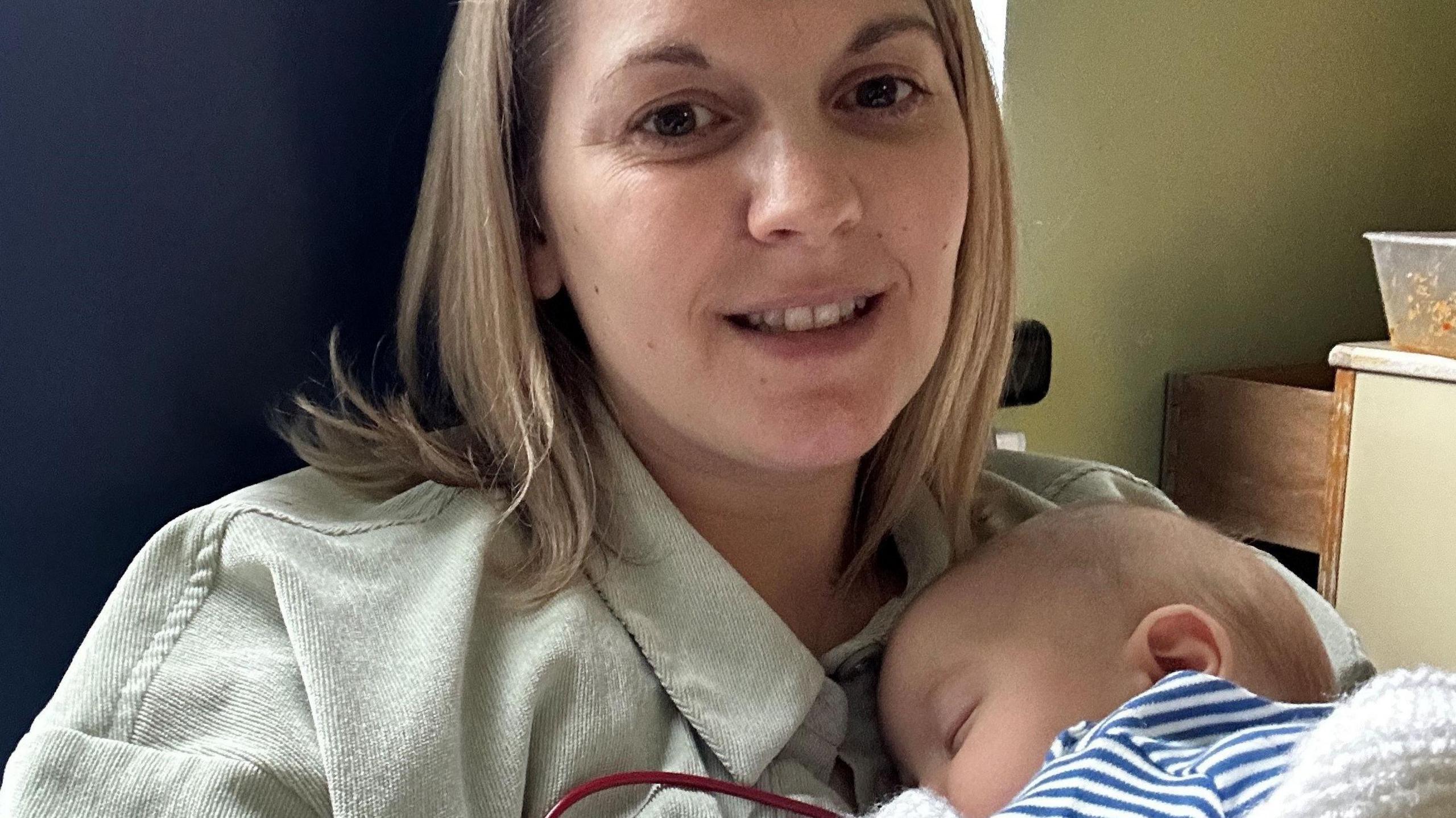
Woody was born at 34 weeks with extremely low haemoglobin levels
Concerns about Woody's health began before birth, with 20-week prenatal scans showing abnormal development.
He was born prematurely at 34 weeks with haemoglobin levels about one quarter of what they should have been.
The NHS Blood and Transfusion (NHSBT) explained that Woody's condition meant his chromosomes were not organised within the nucleus of his cells.
The chromosomes contain all of the DNA in a cell and when disorganised, the cells do not develop and divide properly.
This has meant that Woody's immature red blood cells either die in the bone marrow or do not survive for very long.
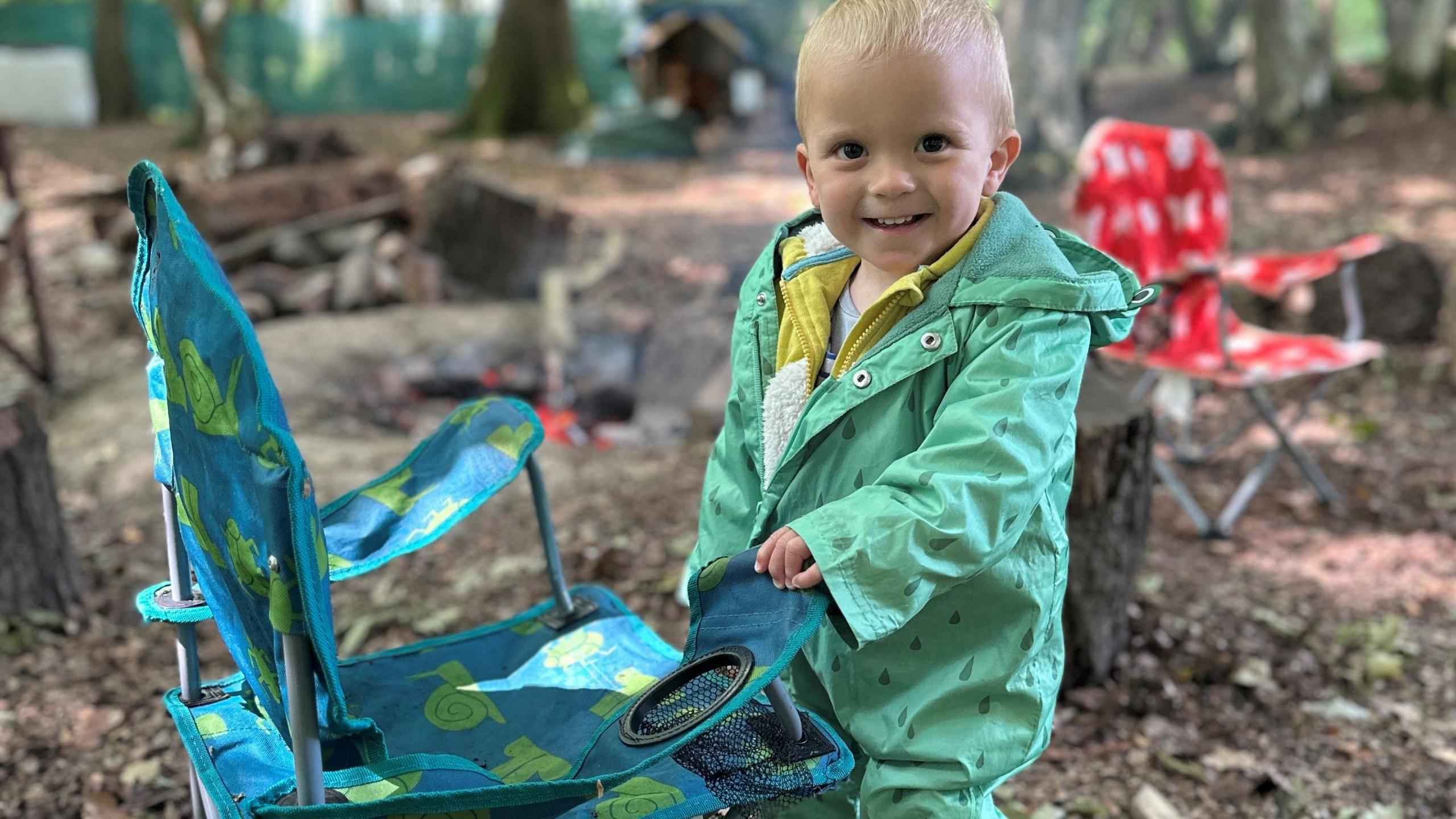
Woody's mother, Polly, said he was completely reliant on blood donors
Polly said: "Woody has been on the chronic transfusion pathway for more than a year. He's completely reliant on blood donors.
"Every four weeks he gets about 140mls of red blood cells to boost his haemoglobin."
NHSBT said despite what Woody was going through, he was a "resilient, happy and energetic toddler" who loved going to the park, swings and riding his bike.
Woody's family are supporting NHSBT's appeal for patients with similar rare conditions to get the new NHS genetic extended blood group testing performed.
NHSBT said the "ground-breaking" test uses genetics to identify rarer blood groups, known as "extended blood groups".
Kate Downes, head of genomics at NHSBT, said: "This enables comprehensive testing to be rolled out for people with sickle cell, thalassaemia, and transfusion-dependant, rare inherited anaemias.
She added: "We want everyone eligible, like Woody, to be tested so they can get better matched blood.
"We also need more people to donate, so we can supply the matched lifesaving blood to Woody and people like him."
Polly said: "If it wasn't for blood donors, Woody would not be alive."
Follow BBC Sussex on Facebook, external, on X, external, and on Instagram, external. Send your story ideas to southeasttoday@bbc.co.uk, external or WhatsApp us on 08081 002250.
- Published13 January
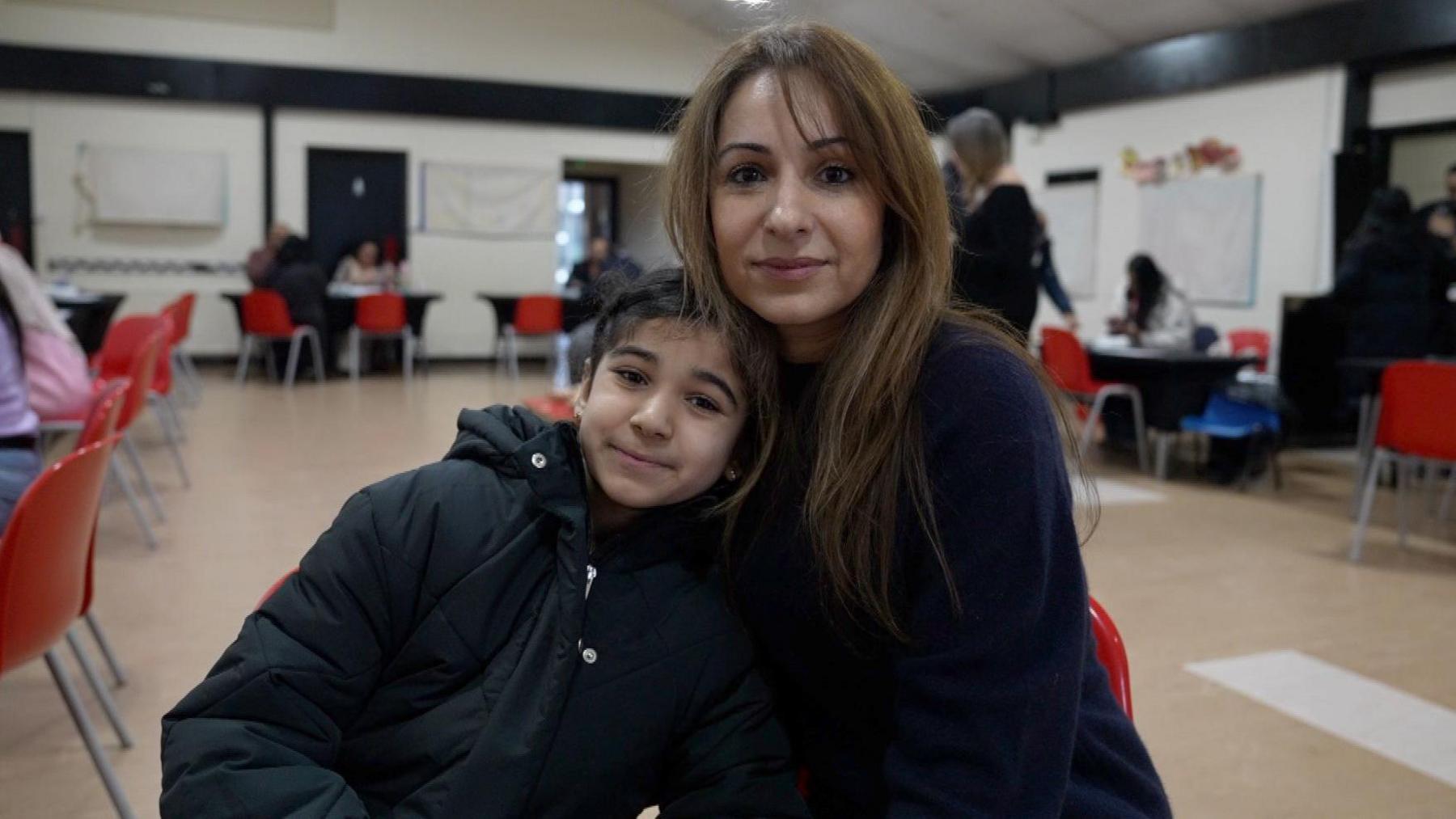
- Published4 August
